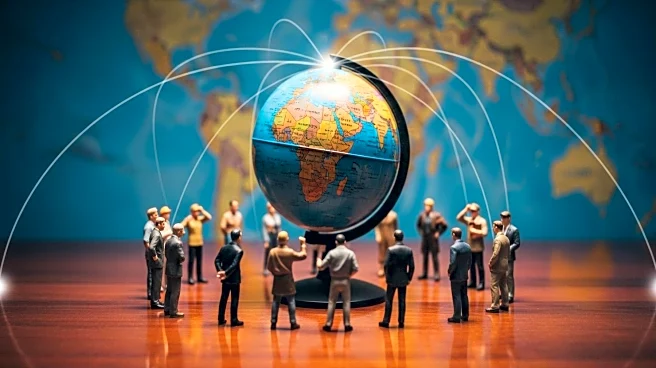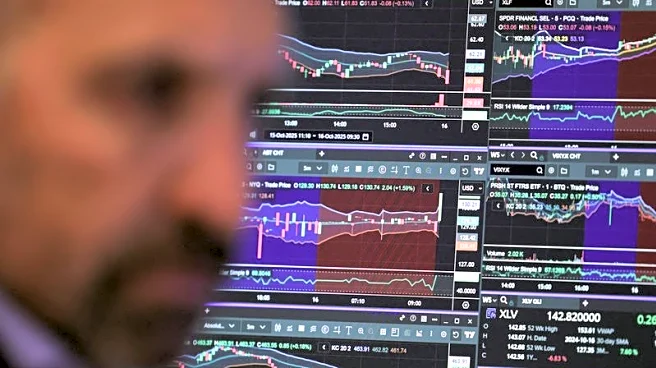What is the story about?
What's Happening?
External Affairs Minister S Jaishankar emphasized the need for a global workforce and the emergence of new trade arrangements during a panel discussion at the Observer Research Foundation on the sidelines of the 80th UN General Assembly session. Jaishankar highlighted India's efforts to diversify economic ties by engaging with regions such as Latin America and the Caribbean. He noted that despite global uncertainties, trade would continue to evolve, driven by advancements in technology, connectivity, and workplace models. Jaishankar's remarks come in the context of recent U.S. actions, including raising H-1B visa fees and imposing tariffs on India.
Why It's Important?
Jaishankar's comments underscore the shifting dynamics in global trade and workforce requirements. As countries navigate economic uncertainties, the call for a global workforce reflects the need for adaptable and diverse economic strategies. India's engagement with Latin America and the Caribbean signifies a strategic move to broaden its trade partnerships, potentially reducing reliance on traditional markets. The U.S.'s recent policy changes, such as increased visa fees and tariffs, could impact international business relations and workforce mobility, prompting countries like India to seek alternative trade routes and partnerships.
What's Next?
The global trade landscape is expected to undergo significant changes as countries adapt to new economic realities. India's proactive approach in expanding its trade partnerships with regions like Latin America and the Caribbean may lead to new economic opportunities and collaborations. Stakeholders, including businesses and policymakers, will likely monitor these developments closely to assess their impact on international trade and workforce mobility. The evolving trade arrangements could also influence future diplomatic and economic policies between major global players.
Beyond the Headlines
The emphasis on a global workforce and new trade arrangements highlights broader implications for international labor markets and economic policies. As countries seek to diversify their economic ties, there may be ethical and cultural considerations in integrating diverse workforces and establishing equitable trade practices. The long-term shifts in global trade dynamics could also influence geopolitical relations and economic stability, prompting discussions on sustainable and inclusive growth strategies.
















